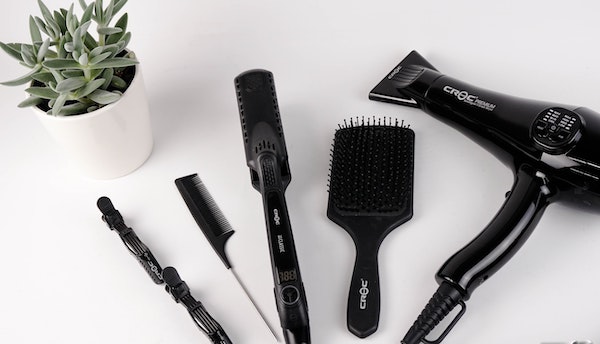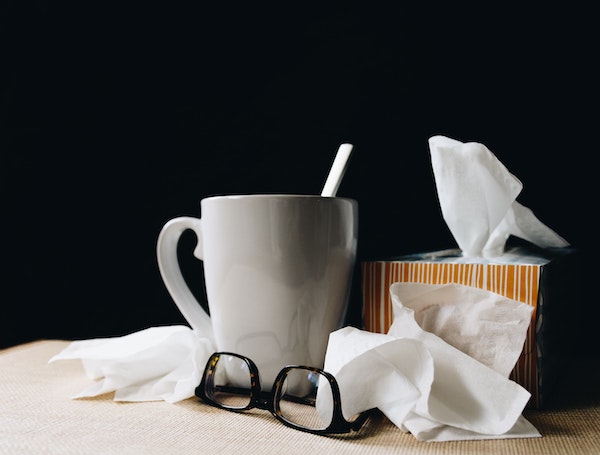Sleeping with wet hair was one of the biggest no-no’s of my childhood. Whenever I’d come home from school or just late in general, my tita (who was taking care of me at the time) would always make sure I stayed awake until my hair dried. “If you sleep with wet hair, you’ll go crazy or become blind in the morning!” is what she told me.

When that didn’t suffice, she said that I’d probably get a cold or a crazy headache when I woke up. Her fear mongering did work for a while, but I likely spent most of my college days sleeping with wet hair due to tiredness or lack of time.
Did I go blind? Crazy? Catch a cold? Wake up with a massive headache?
(Un)surprisingly, no.
The crazy, though. I think I was already crazy to begin with. Just kidding.
The belief of sleeping with wet hair causing blindness and insanity has been passed down for generations. Older people still tend to believe it, but younger people know it’s more myth than fact. Getting a headache or a cold when you sleep with wet hair, though, a good number of people still believe.
So what does science have to say about that?
“Sleeping with wet hair makes you go insane or causes blindness”
This is an old wives tale. There’s no scientific correlation between sleeping with wet hair and either mental illness or blindness. Both blindness and mental illness can be caused by several different factors, and sleeping immediately after taking a shower while your hair is still wet isn’t one of them.
“Sleeping with wet hair can make you sick”
To the sound mind, this idea seems more plausible. The hypothesis can stem from the fact that your damp hair is cold, and the low temperature can cause a cold. Another hypothesis is that the difference in temperature can also “weaken” your immune system, which makes you more susceptible to getting sick.

While these ideas seem to have a more scientific basis than blindness or insanity, sleeping with wet hair has no scientific correlation with catching a cold or getting sick in general.
It’s important to remember what a cold is. A cold is a virus that gets passed on to other people through bodily fluids. You can also catch a cold by coming into contact with a contaminated surface or merely someone who also has a cold.
So that being said, you’re more likely to catch a cold if you meet up with someone rather than sleeping with wet hair.
[READ: It’s time to learn the difference between a cold and an allergy]
“What about a headache?”
The headache idea seems to flow from the same vein as the getting sick hypothesis. It’s said that some people who are susceptible to headaches often wake up with migraines because of the difference in temperature from their head and the rest of their body.
While there have been some scientific studies on the correlation between the cold, wet hair, and headaches, it doesn’t link the three with indisputable facts. Scientists regard this phenomenon as a general observation rather than a scientific truth.
It’s also important to note that cold is very much a factor in this situation. If you’re sleeping with the electric fan or the air conditioner pointed at your damp head, this could trigger your headache. But if your head is feeling cozy, then probably not.
For this, though, it’s best to err on the side of caution and grab your blow dryer if you’re prone to headaches and migraines.
So can you sleep with wet hair?
While you can sleep with wet hair—meaning that it won’t make you blind, crazy, or sick—it doesn’t mean that there aren’t other things that you should worry about when you take the post-shower trip to dreamland.
Sleeping with damp hair can be a recipe for an unexpected and uninvited guest: fungal infections. Fungi thrive in damp, warm climates, which is exactly what your pillow becomes when you sleep on it with wet hair. But, it’s important to remember that this only happens when sleeping with wet hair becomes a habit.
Fungi and mold won’t grow on your pillow overnight, it has to be a recurring event. You must also already be a carrier of the mold or bacteria. The damp environment will serve as the perfect petri dish for its growth. So if you do sleep with wet hair, make sure your pillows and sheets are clean.
The bigger reason you shouldn’t sleep with wet hair, though, is more looks-motivated. Wet hair can be more susceptible to breakage and tangling. When your hair is wet, it can safely stretch up to 30 percent without breaking. When it dries while you toss and turn in bed, this can lead to breakage.
If you sleep in a bun or with your hair braided, that can lead to more severe breakage because the coils in your hair tighten up as it dries.
Your hair can also develop matts while you sleep and make it more difficult to brush out—ergo, lots of lost strands. Finally, your hair also dulls and loses its shine when you take it to bed wet.
But in case you do find yourself out of time to completely dry your hair, there are still some steps you can take to sleep safely.
First, make sure you wash your hair thoroughly and try to wring it out as much as possible. Second, please, please, make sure your pillow, pillowcase, and sheets are clean so you won’t accidentally grow anything. And finally, invest in a silk pillowcase. Using a silk pillowcase can lessen friction between your hair and your pillow and possibly keep it from tangling up and breaking too badly.
So it’s safe to say that sleeping with wet hair isn’t as bad as our moms and lola’s think, but please avoid it if you can.

